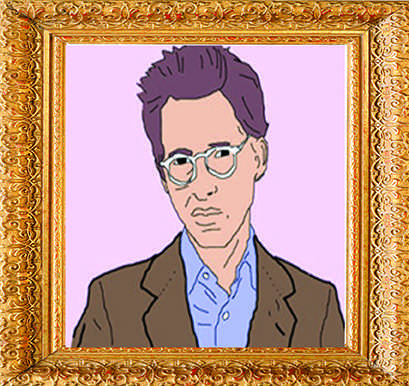Wes Anderson, Grand Budapest Hotel impress
April 2, 2014
“Dear Suzy, here is my plan…”
“Dear Sam, my answer is yes.”
The Legacy
Wes Anderson has created perhaps some of the most enticing and magical films of the 21st century. From the charming, romantic world of Moonrise Kingdom to the chaotic and troubling lives of The Royal Tenenbaums, the Anderson legacy is one of many facets.
Perhaps most entrancing about Anderson’s films is his ability to alter a realistic setting into a more simplistic, more beautiful world. Each film appears to have a colorized theme (yellow in Moonrise Kingdom, blue in The Life Aquatic with Steve Zissou, and red and purple in new release Grand Budapest Hotel), adding to the romanticism and interest of the story.
In the same way, the artistic costuming nearly always appears to perfectly capture the ideal of each scene. Though perhaps most impressive are the casting decisions. Each actress and actor chosen to bring Anderson’s world to life are so in-tune with their role that it feels they were reincarnated as an Anderson-created ego.
What makes an Anderson film so recognizable is also what makes it so unique. Each film goes far beyond the normal plot-script-character format, being a piece of art rather than a cinematic blockbuster. The storyline that each film follows is never a replication of a been-there-done-that film, but a unique journey that follows the characters through their own turmoils and tribulations.
Grand Budapest Hotel
The film had a slow wind up, a usual for its director, Wes Anderson. The entire film dips into the life stories of the writer played by Tom Wilkinson, Gustave – the concierge and Zero – the lobby boy; whose child like face made the character all too convincing. Between cake-like backgrounds with vivid colors, I found myself transported into the little world Wes Anderson built on screen in the fictional country of Zubrowka.
His camera angles and clean shots made it easier to focus on the task at hand, and like his other films Wes Anderson’s slow cranking plot broke to speed and eventually became the comedy I was expecting. The pastels and attention to detail in each scene was evident. From small cracks in the crown molding to frosting-like icicles hanging outside, the finishing touches of a classic Anderson film became apparent. Each carefully placed detail was an artistic addition, similar to his last popular hit, Moonrise Kingdom. But unlike Moonrise, each joke had a different specific meaning to each crowd member.
The film was superb and, like its director, it held on to a meticulous integrity that meant something for everyone. The Grand Budapest Hotel was a film made with love, a sweetlypersonal cinematic equivalent of a sugar coated- treat meant just for you.




